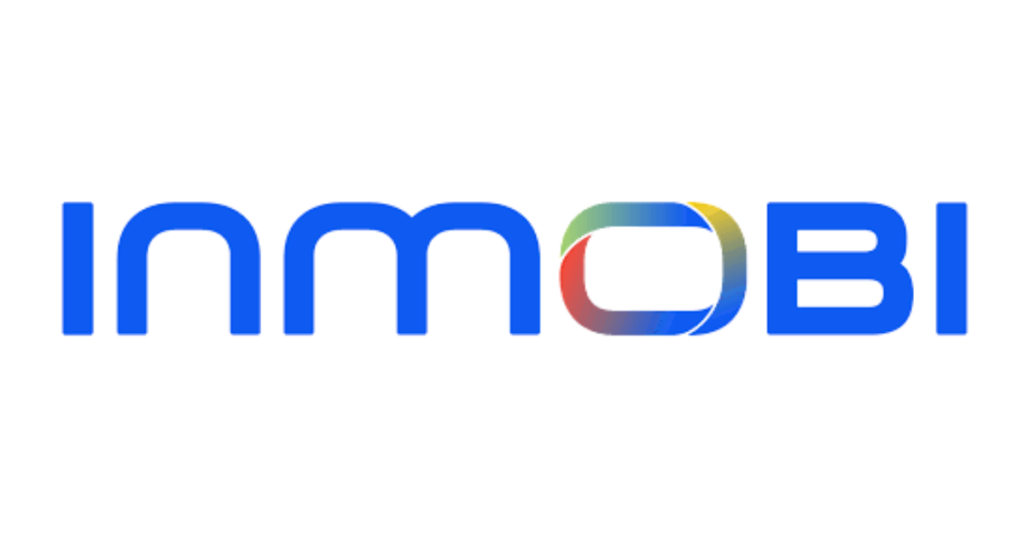Top 10 Financial Inclusion Startups in India
1. Paytm Payments Bank

Summary:
Paytm Payments Bank is a leading digital bank in India that emerged from the popular Paytm digital wallet platform. It offers mobile banking services, digital wallets, and financial products aimed at providing convenient and accessible banking solutions to all segments of society, especially those in underserved areas.
Table:
| Aspect | Details |
|---|---|
| Startup Name | Paytm Payments Bank |
| Founded | 2017 |
| Headquarters | Noida, India |
| Key Services | Mobile banking, digital wallets, savings accounts, payment solutions |
| Specialization | Financial inclusion through digital banking |
| Key Achievements | Expanded digital banking services across India, enhanced financial access |
2. PhonePe

Summary:
PhonePe is a popular digital payments platform in India that facilitates UPI-based transactions, bill payments, mobile recharges, and more. It aims to make digital payments accessible and convenient for individuals across the country, thereby contributing significantly to financial inclusion.
Table:
| Aspect | Details |
|---|---|
| Startup Name | PhonePe |
| Founded | 2015 |
| Headquarters | Bangalore, India |
| Key Services | UPI payments, bill payments, mobile recharges, digital wallets |
| Specialization | Digital payments and financial services |
| Key Achievements | Extensive user base, integration with major merchants, seamless payment experience |
3. BharatPe

Summary:
BharatPe is a fintech startup focused on empowering small merchants with easy QR code-based payments and financial services. It offers digital payment solutions, merchant loans, and other financial products to support the growth of small businesses across India.
Table:
| Aspect | Details |
|---|---|
| Startup Name | BharatPe |
| Founded | 2018 |
| Headquarters | New Delhi, India |
| Key Services | QR code payments, merchant loans, digital payment solutions |
| Specialization | Empowering small merchants through digital payments |
| Key Achievements | Rapid expansion, innovative payment solutions, support for small businesses |
4. KhataBook

Summary:
KhataBook is a digital ledger app designed to help small businesses manage their accounts digitally. It enables merchants to track transactions, issue digital receipts, and access credit, thereby promoting financial inclusion among small and medium enterprises (SMEs).
Table:
| Aspect | Details |
|---|---|
| Startup Name | KhataBook |
| Founded | 2018 |
| Headquarters | Bangalore, India |
| Key Services | Digital ledger, credit tracking, bookkeeping for SMEs |
| Specialization | Financial management for small businesses |
| Key Achievements | Large user base, simplifying financial management for SMEs, facilitating digital transactions |
5. MobiKwik

Summary:
MobiKwik is a leading digital wallet and payments platform in India. It offers a range of services including digital wallets, bill payments, recharges, digital loans, and insurance products, catering to the diverse financial needs of its users.
Table:
| Aspect | Details |
|---|---|
| Startup Name | MobiKwik |
| Founded | 2009 |
| Headquarters | Gurugram, India |
| Key Services | Digital wallet, bill payments, recharges, loans, insurance |
| Specialization | Providing comprehensive digital financial services |
| Key Achievements | Long-standing presence, broad range of financial products, extensive user adoption |
6. Rupeek
Summary:
Rupeek is a fintech startup that specializes in gold-backed loans. It enables individuals to obtain instant credit by pledging their gold assets, thereby offering an accessible financing option to a wide range of customers across India.
Table:
| Aspect | Details |
|---|---|
| Startup Name | Rupeek |
| Founded | 2015 |
| Headquarters | Bangalore, India |
| Key Services | Gold loans, asset-backed financing, instant credit |
| Specialization | Providing credit against gold assets |
| Key Achievements | Simplifying access to credit, leveraging gold as collateral, expanding customer base |
7. Lendingkart

Summary:
Lendingkart is a digital lending platform that provides working capital loans to small and medium enterprises (SMEs) in India. It leverages technology for quick loan processing and aims to support the growth of businesses by offering timely financial assistance.
Table:
| Aspect | Details |
|---|---|
| Startup Name | Lendingkart |
| Founded | 2014 |
| Headquarters | Ahmedabad, India |
| Key Services | SME loans, digital lending platform, working capital financing |
| Specialization | Providing quick and accessible business loans |
| Key Achievements | Supporting SME growth, innovative loan processing, significant loan disbursals |
8. Cred

Summary:
Cred is a fintech startup that incentivizes credit card users for timely bill payments. It rewards users with points that can be redeemed for various benefits, aiming to improve creditworthiness and financial behavior among individuals.
Table:
| Aspect | Details |
|---|---|
| Startup Name | Cred |
| Founded | 2018 |
| Headquarters | Bangalore, India |
| Key Services | Credit card rewards, credit score improvement, financial management tools |
| Specialization | Enhancing credit card usage and financial health |
| Key Achievements | Innovative rewards system, promoting financial responsibility, growing user base |
9. ZestMoney
Summary:
ZestMoney is a digital lending platform that offers no-cost EMIs and credit options for online shopping. It provides affordable financing solutions to consumers, making purchases more accessible and manageable through digital credit.
Table:
| Aspect | Details |
|---|---|
| Startup Name | ZestMoney |
| Founded | 2015 |
| Headquarters | Bangalore, India |
| Key Services | Digital lending, no-cost EMIs, credit options for online shopping |
| Specialization | Offering affordable financing solutions |
| Key Achievements | Enabling digital credit access, partnerships with e-commerce platforms, growing user adoption |
10. NiYO Solutions

Summary:
NiYO Solutions provides digital banking solutions tailored for blue-collar workers in India. It offers salary accounts, payroll management, and digital payment solutions, thereby promoting financial inclusion among this segment of the workforce.
Table:
| Aspect | Details |
|---|---|
| Startup Name | NiYO Solutions |
| Founded | 2015 |
| Headquarters | Bangalore, India |
| Key Services | Salary accounts, payroll management, digital payment solutions |
| Specialization | Financial services for blue-collar workers |
| Key Achievements | Addressing financial needs of blue-collar workforce, digital payroll solutions, expanding reach |
frequently asked questions (FAQs) and answers about financial inclusion startups in India:
FAQs About Financial Inclusion Startups in India
1. What are financial inclusion startups?
Answer: Financial inclusion startups are companies that use innovative technologies and business models to provide financial services to underserved or unbanked populations. They aim to promote economic empowerment by offering accessible and affordable financial solutions.
2. How do financial inclusion startups benefit consumers?
Answer: Financial inclusion startups benefit consumers by providing them with access to banking services, digital payments, loans, insurance, and savings products that were previously inaccessible or difficult to obtain. This improves financial security and facilitates economic participation.
3. What types of services do financial inclusion startups offer?
Answer: Financial inclusion startups offer a wide range of services including digital payments, mobile banking, microloans, insurance, savings accounts, and financial literacy programs. They tailor their offerings to meet the specific needs of underserved communities.
4. Are financial inclusion startups regulated in India?
Answer: Yes, financial inclusion startups in India are regulated by the Reserve Bank of India (RBI) and other regulatory bodies. They must comply with regulations related to banking, payments, lending, and consumer protection to ensure the safety and security of financial transactions.
5. How can I access services offered by financial inclusion startups?
Answer: You can access services offered by financial inclusion startups through their mobile apps, websites, partner merchants, and agent networks. Many startups also provide customer support services to assist users in navigating their platforms.
6. Are the services offered by financial inclusion startups safe?
Answer: Yes, services offered by financial inclusion startups prioritize security and privacy. They use encryption technology, secure payment gateways, and adhere to regulatory guidelines to ensure the safety of financial transactions and customer data.
7. What are the eligibility criteria to avail services from financial inclusion startups?
Answer: Eligibility criteria vary depending on the service and startup. Generally, you may need to provide identification documents, meet minimum age requirements, and sometimes demonstrate creditworthiness or income stability for certain financial products.
8. How do financial inclusion startups contribute to economic development?
Answer: Financial inclusion startups contribute to economic development by expanding access to financial services, promoting savings and investment, supporting small businesses with credit facilities, and facilitating smoother financial transactions that stimulate economic growth.
9. Can financial inclusion startups help improve financial literacy?
Answer: Yes, many financial inclusion startups offer financial literacy programs and educational resources to empower consumers with knowledge about managing money, making informed financial decisions, and understanding the benefits of formal banking services.
10. How can I choose the right financial inclusion startup for my needs?
Answer: To choose the right financial inclusion startup, consider factors such as the range of services offered, fees and charges, customer support quality, user reviews, security features, and the startup’s reputation in the industry. Compare different options to find one that aligns with your financial goals and preferences.
Last Updated on: Monday, June 24, 2024 1:45 pm by News Pixel Team | Published by: News Pixel Team on Monday, June 24, 2024 1:41 pm | News Categories: Trending
About Us: News Pixel covers the latest News on Current News, Business, Sports, Tech, Entertainment, Lifestyle, Automobiles, and more, led by Editor-in-Chief Ankur Srivastava. Stay connected on Facebook, Instagram, LinkedIn, X (formerly Twitter), Google News, and Whatsapp Channel.
Disclaimer: At News Pixel, we are committed to providing accurate, reliable, and thoroughly verified information, sourced from trusted media outlets. For more details, please visit our About, Disclaimer, Terms & Conditions, and Privacy Policy. If you have any questions, feedback, or concerns, feel free to contact us through email.
Contact Us: anishsri015@gmail.com